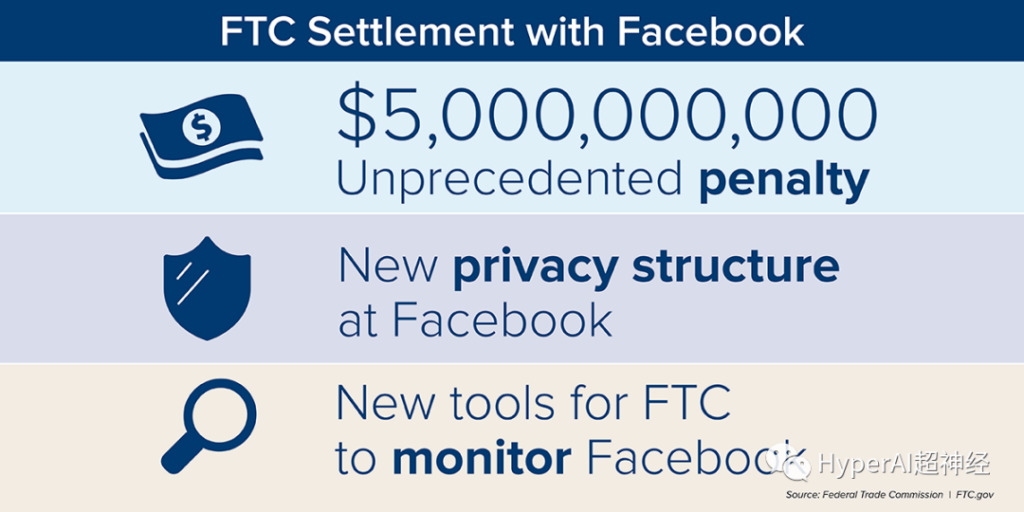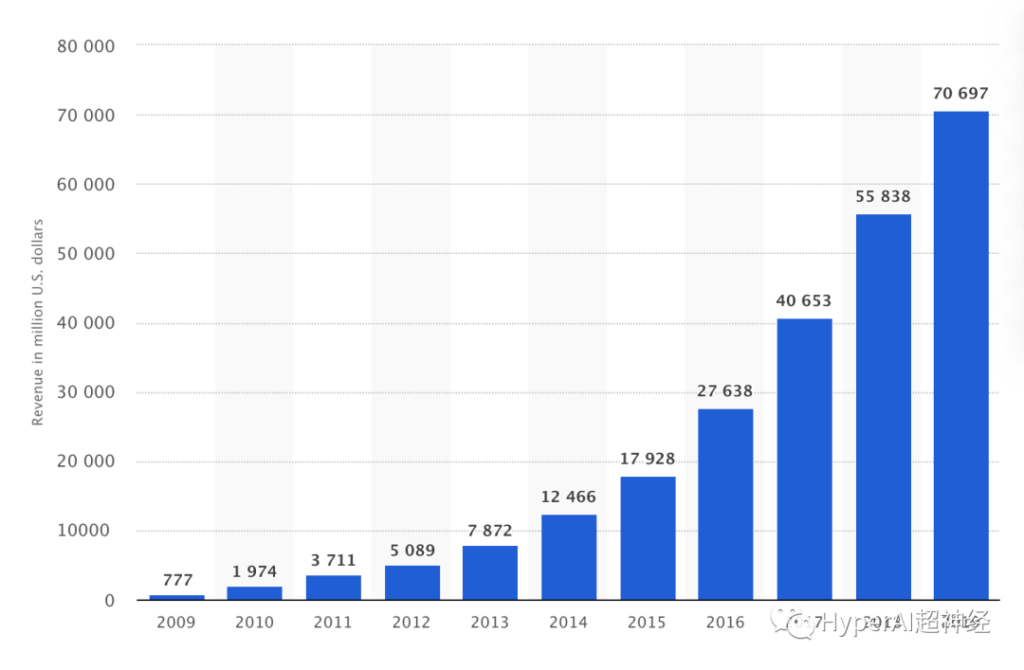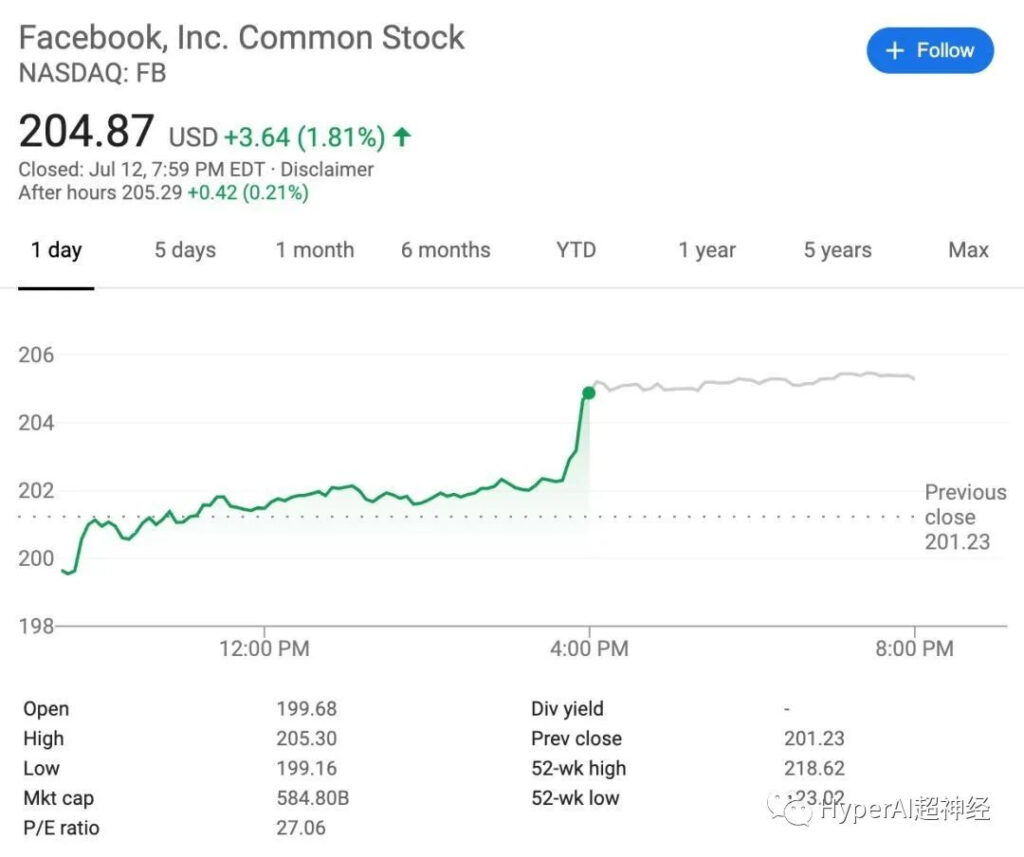Command Palette
Search for a command to run...
Cambridge Analytica Incident Ends, Facebook Agrees to Pay $5 Billion

Recently, the settlement agreement reached between Facebook and the FTC on the Cambridge Analytica incident was formally approved by the federal court, which means that the largest fine in the history of privacy security has officially come into effect.
Recently, the settlement agreement reached between Facebook and the U.S. Federal Trade Commission (FTC) regarding the "Cambridge Analytica" incident in which the data of tens of millions of users were leaked was officially approved by the U.S. federal court.
This also means that the much-publicized data privacy case has finally come to an end.

In the officially effective agreement, Facebook agreed to a fine of $5 billion and will make corresponding rectifications in terms of security and privacy.
Incident: 87 million users’ data was misused
Let’s sort out the timeline:
2015: Aleksandr Kogan, a scholar at Cambridge University, collected a large amount of user data from Facebook using paid questionnaires, but after completing his compliance research, he transferred the data to Cambridge Analytica.
After discovering this, Facebook sent requests to both parties to delete the data, and both received responses that the data had been deleted, but later discovered that Cambridge Analytica had lied.
2016: During the US election, Cambridge Analytica, which was employed by Trump, used a large amount of data obtained from Facebook to carry out precise political advertising and persuade voters to vote for Trump.
March 2018: Reports from multiple media outlets revealed that Cambridge Analytica did not delete the data at the time, and ultimately confirmed that as many as 87 million Facebook user data were used in that year's election.

The incident immediately caused an uproar, and Cambridge Analytica and Facebook were criticized by people.
By the end of the month, Facebook, whose market value had evaporated by $70 billion, was investigated by the FTC, with the focus on whether its protection of user privacy was legal and compliant.
May 2018: Amid the overwhelming negative news, Cambridge Analytica lost a large number of users and business and eventually went into bankruptcy liquidation.
July 2019: The FTC made public its findings from the investigation, pointing out that Facebook privately shared data with third parties, engaged in widespread fraud that misled users, and did not have a comprehensive and reasonable privacy and security protection policy.

But considering that litigation would be lengthy and complicated, the FTC finally announced a settlement agreement with Facebook.
July 24, 2019: The FTC passed the agreement with a 3:2 vote (three Republican commissioners in favor and two Democratic commissioners against).
The agreement stipulates three penalties for Facebook: a $5 billion fine, strengthened privacy compliance measures, and the establishment of an independent privacy committee.

April 23, 2020: The certification agreement has come to take effect, and the federal court has formally approved it, and the case has been settled.
Settlement: 900 million violations resulting in huge fines
The FTC is a federal agency that protects consumer rights. One of its responsibilities is to regulate major technology companies and stop behaviors that harm consumers.
This $5 billion fine also set a record for the largest fine in the history of the FTC. But how was this amount obtained?

According to the investigation report issued by the FTC in 2019, Facebook violated Section 5 of the Federal Trade Commission Act, which includes the basis for the fine:
After the FTC agreement comes into effect, during the validity period, any individual, partnership or company that violates the regulations shall pay a civil penalty of no more than $10,000 for each violation, and all fines shall belong to the US government...
Each violation of the order is considered a separate offense...
Facebook's series of actions violated the regulatory agreement it reached with the FTC in 2011, in which every time a page with a fraudulent description is viewed by a user, it is recorded as a violation.
In the Cambridge Analytica case, the FTC determined that this process occurred approximately 900 million times, with a penalty of $5.56 per violation, for a total of a staggering $5 billion.

The FTC also emphasized in the notice that the unprecedented $5 billion fine and the tightening of supervision on Facebook will serve as a good deterrent and is a "historic victory for American consumers."
Controversy: Is a $5 billion fine a bit too little?
While $5 billion is a significant fine, the settlement has been criticized by some, including those who say it is too small compared to Facebook's huge profits and could embolden such violations.
According to Facebook's 2019 annual financial report, as of the end of last year, Facebook's monthly active users reached an astonishing 2.5 billion, with annual revenue of US$70.7 billion and net profit of US$18.5 billion.

The $5 billion fine is equivalent to 7% of its full-year revenue in 2019 and 27% of profit, which is approximately one month's revenue.
An FTC commissioner who opposed the settlement also pointed out that Facebook had gained far more than $5 billion from its privacy misconduct, and that if the case went to court, the final fine would be much higher than that amount.
It is hard to say whether the $5 billion fine is too light. However, Facebook, which has suffered greatly from the Cambridge Analytica incident, is clearly inclined to reach a settlement as soon as possible.
Another interesting point is that on the day the FTC and Facebook announced a settlement last year, Facebook's stock price rose 1.81%, and its market value increased by $10.4 billion, more than twice the fine.

So no one knows whether this experience will make Facebook more careful.








